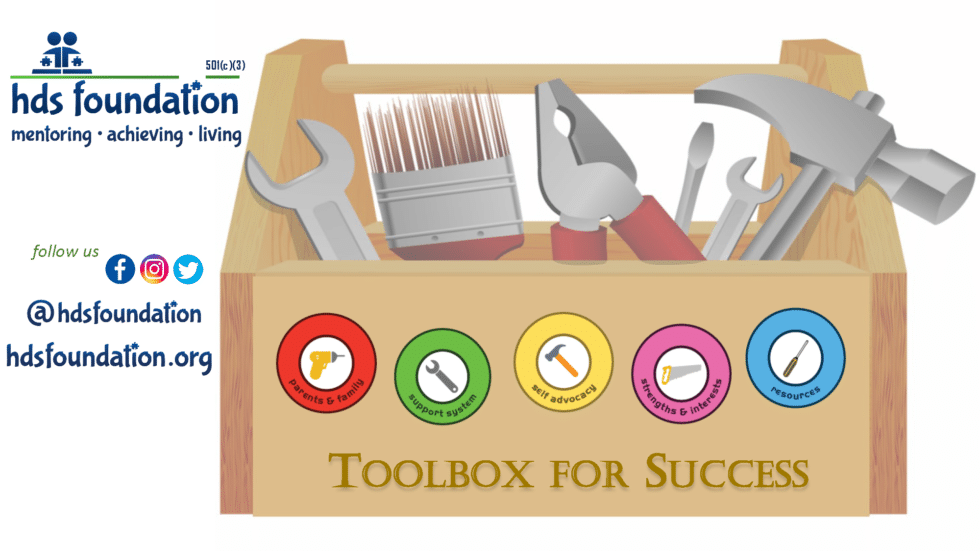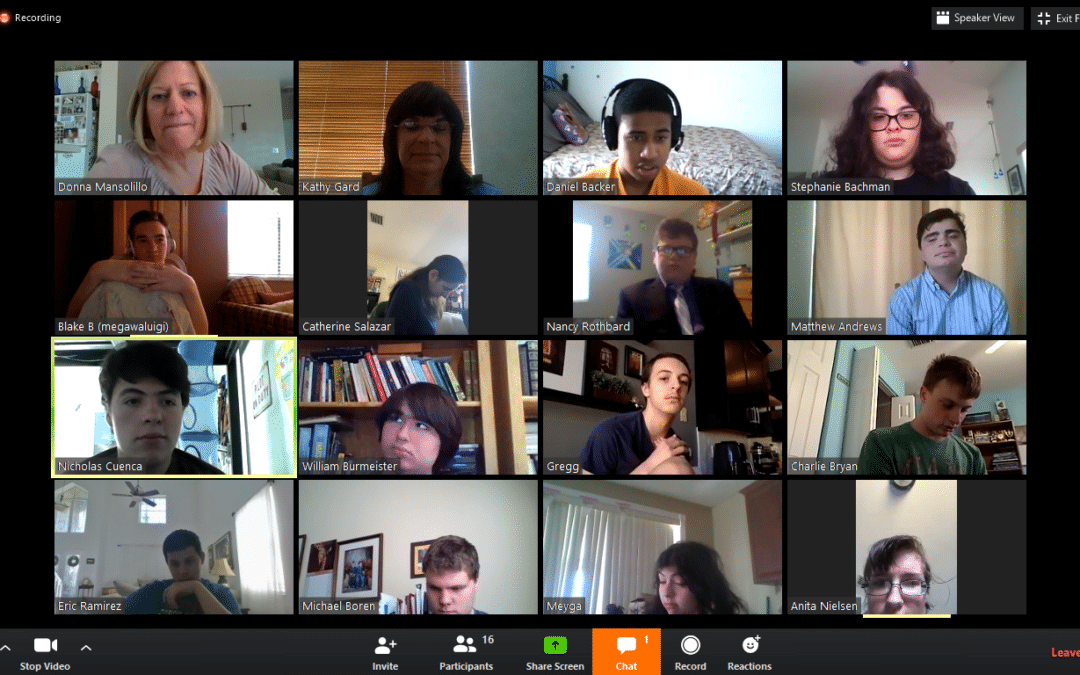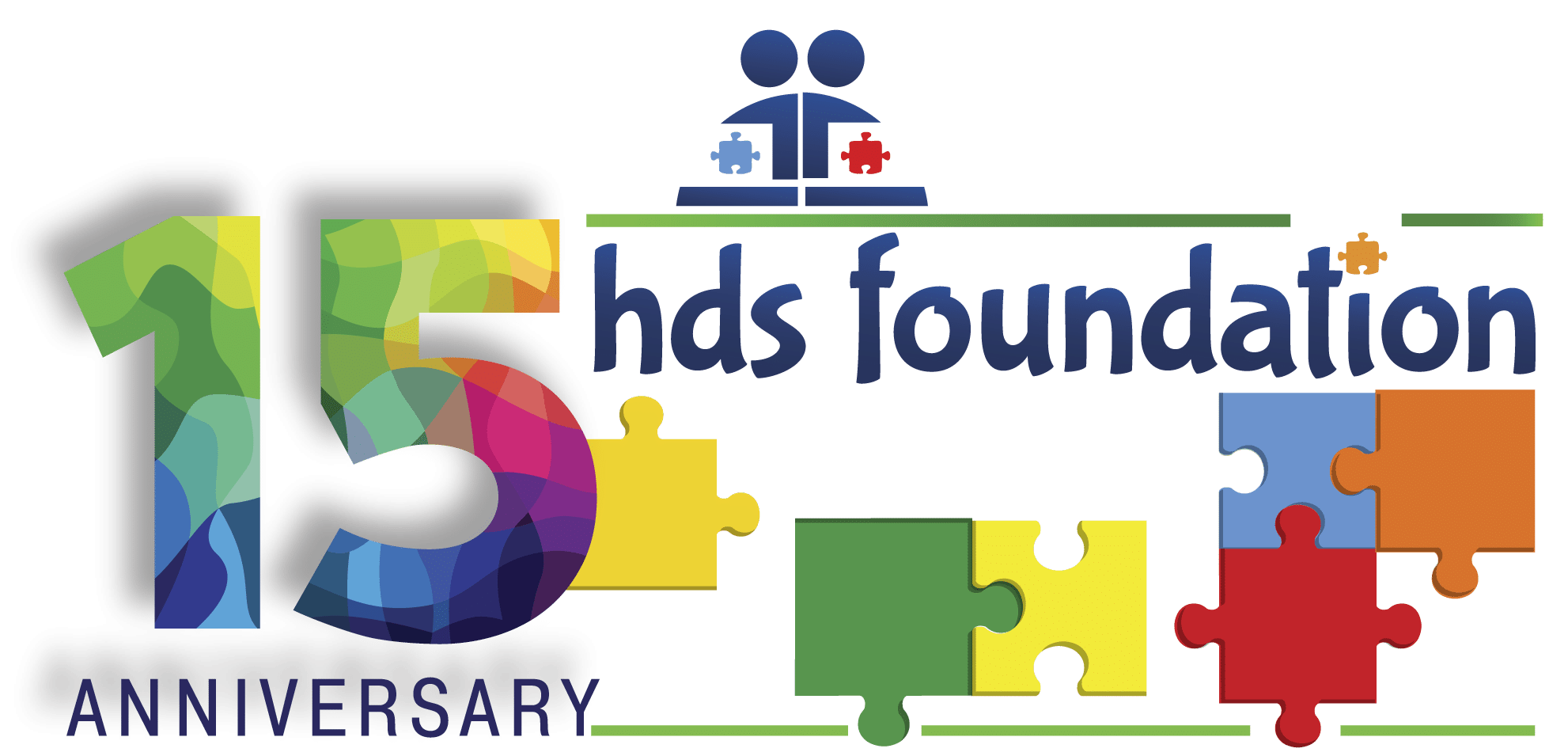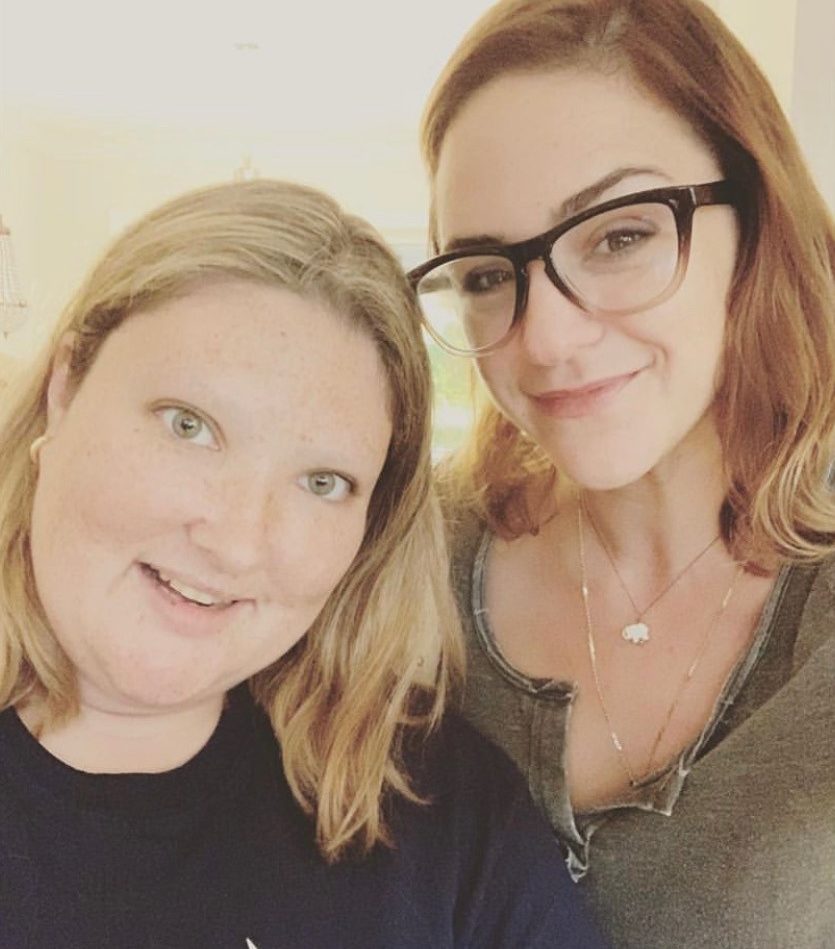B.R.I.D.G.E.S. GRANT
The HDS Foundation is a 501 (c)(3) Non-Profit Organization founded to provide mentoring services and opportunities to teens and young adults who have Autism-related disabilities—launched in 2008 by Founder and Chairman, Cristina Gilson-Miranda, the organization funds several initiatives, including the HDS B.R.I.D.G.E.S. GRANT. The purpose of the Grant is to address the social and transitional needs of a niche group of students with Autism Spectrum Disorder (ASD) who are seeking to navigate through high school and transition to a post-secondary journey. Through the Grant, the HDS Foundation partners with local high schools to identify candidates who are under-served in these areas. The Foundation provides them with financial and community-based resources along with support that enables the teachers and students to engage in activities they typically would not be able to access. These activities are separate and distinct from those provided by the school system, also known as Community Based Instruction (CBI) trips.
The B.R.I.D.G.E.S. Grant provides specialized programming that offers interactive community and school-based activities. These provide real-life experiences that help students who are on the Autism Spectrum transitioning from high school into post-secondary. Through the Grant, facilitators and teachers of the program receive extra funds that allow the students to engage in non-typical school activities. These include organized community-based trips that teach students the importance of budgeting, resources, independent functioning, development, growth, empowerment, and social skill. During these trips, students will make their own purchases, dine out, and engage in typical social activities with individuals of their peerage. The grant funds also support typical school-based parties, prom, and any other related activities that are not funded by the school system and greatly benefit this specific population.
The Grant is structured as an annual application, available by mid to late January of each year. Schools must submit the grant request by April 28th, and the Foundation will award it by May 15th. The Grant maximum is $5,000 per school year; it is disbursed with part of the funds awarded at the student level. This process creates an exclusive learning opportunity for shopping, eating out, etc. which are vital to the budgeting component of the B.R.I.D.G.E.S. Program.
To apply for the BRIDGES GRANT, please click on the link below:
For more information, please contact Liz Falk, HDS Foundation, Program Manager at liz@hdsfoundation.org or call-954-217-9597, ext. 260.

Toolbox for Success
Cristina Miranda Gilson is the Founder and CEO of HDS Companies. A passionate Philanthropist, Cristina has been an active supporter of numerous charitable initiatives throughout her life. Inspired through her journey raising her daughters, she has been an avid supporter and outspoken advocate for the Autism Community for more than twenty years. In 2008, Cristina founded the HDS Foundation and proudly serves as the Chairman and President of the organization.
The HDS Foundation is the driving force behind the numerous charitable efforts of Cristina Miranda Gilson, and HDS Companies. The Foundation encapsulates Cristina’s passion for supporting the Autism Community through collaboration that brings together programs and resources, as well as HDS Companies’ commitment to pursuing corporate social responsibility initiatives in the communities in which we live, work, and learn. The Foundation’s primary mission is to provide resources for families, and organizations who Mentor, Teach, Develop, and Support individuals on the Autism Spectrum and beyond.
Cristina and her daughter, Kate Miranda Gilson, have personally experienced the journey of transitioning from high school to a successful post-secondary education. After this experience, Cristina decided to create a “Toolbox for Success” to assist other parents and caregivers of teens and young adults with Autism Spectrum Disorder or related disabilities in pursuing their transitional journey.
The “Toolbox for Success” equips the student, parents, and families with the necessary tools and supports that will help prepare them for a smooth transition. Cristina’s vision is that by utilizing the toolbox, teens and young adults will be able to successfully plan their journey into adulthood with the assistance of their parents or caregivers and strengthen their chances for meaningful, long-term employment, and a self-sufficient life.
The “Toolbox for Success” covers the categories listed below:
- Parents and Families
- Support System
- Self-Advocacy
- Strengths and Interests
- Community Resources
Make sure to check out our Resources page that may help you in building YOUR Toolbox for Success.
What Your Sister Means to You
Siblings are like flowers from the same garden where each flower has their own unique traits and personalities. Throughout a lifetime, siblings challenge, respect, admire and teach each other life lessons when necessary. As part of our Autism Awareness Month programs, the HDS Foundation has been sharing Blogs that provide Community Resources along with personal testimonials. We asked two of our Foundation’s Board Members, who happen to be sisters, to share how they achieved such a special sibling bond bounded by love, courage, and understanding. Here is what they had to say about their connection and why it is one of a kind.
“Those of us with younger brothers and sisters experience a different type of love and connection with our sidekicks. We joke about how lucky they are to have us as their sibling, but it’s much more than that. It’s about the opportunity we’ve had to grow and learn about ourselves through each other’s perspectives, interactions, and life experiences. We are all very different and have exceptional dynamics with each other, and the outside world. My sister Kate is Autistic, growing up with a sister on the Autism Spectrum has provided me with a better understanding of many different aspects of life relationships and our lives in general. There can be conflict and confusion, as with any sibling relationship. Still, there’s an unspoken trust and a great sense of care that comes with experiencing the unknown together. We can teach each other our different perspectives, while also being challenged with everyday endeavors that can turn into turmoil. Trying to figure out how to solve a problem at hand is not always pretty, predictable, or successful when your thought processes are entirely different and unnatural to each other. However, we are always able to persevere, grow, and thrive through our experiences because of the unconditional love we share for one another. Yet, it’s not always about solving problems; I have learned that it’s more about being there to support and understand my sister in the ways she needs to be supported, rather than how I feel I should support her. These experiences have taught me to become a better sister to Kate and my other siblings while becoming a kinder person to people in my life. I always remind my siblings how grateful I am for the love and support our relationship brings to me, and I always remind myself to practice self-gratitude,” said Meagan Bouscher, Secretary of the HDS Foundation Board of Directors.
“My sister is an extraordinary person; I remember her teaching me ballet, dressing me up for Halloween, and traveling all over the world while singing Disney songs. I am on the Autism Spectrum, and sometimes things are difficult for me to process; however, things aren’t only difficult for me, they’re also difficult for Meagan. She has Diabetes and experiences daily challenges and difficulties. Meagan has had to wear a pump, test her sugar levels, and give herself insulin since she was 11 years old. I want to say that she is my hero. Meagan is beautiful, funny, an artist who loves antiques and everything vintage. She has some interesting tattoos, and, most importantly, has always been very dedicated to helping people with Autism. I think we are both a little stubborn, emotional, and sometimes we might consider that the other gets more attention from family and friends. Still, overall, I think she is awesome! I have the best sister; I hope as we grow older, we can stay best friends forever. I pray that she will always be healthy and so that we can continue to enjoy experiences together for many years to come. I love my sister Meagan,” said Kate Gilson Miranda, Junior Board Member of the HDS Foundation.
Press Release COVID 19 New EIP Guidance Statement
New Guidance about COVID-19 Economic Impact Payments for Social Security and Supplemental Security Income (SSI) Beneficiaries from Social Security Commissioner Andrew Saul
“The Treasury Department launched a new web tool allowing quick registration for Economic Impact Payments for eligible individuals who do not normally file a tax return, and also announced that it would begin making automatic payments. However, for some people receiving benefits from the Social Security Administration–specifically those who have dependent children under the age of 17–it is to their advantage to go to this portal to ensure they also get the $500 per dependent Economic Impact Payment. I encourage them to do this as soon as possible, and want to provide the following details:
People who receive Social Security retirement, survivors, or disability insurance benefits and who did not file a tax return for 2018 or 2019 and who have qualifying children under age 17 should now go to the IRS’s webpage at www.irs.gov/coronavirus/economic-impact-payments to enter their information instead of waiting for their automatic $1,200 Economic Impact Payment. By taking proactive steps to enter information on the IRS website about them and their qualifying children, they will also receive the $500 per dependent child payment in addition to their $1,200 individual payment. If Social Security beneficiaries in this group do not provide their information to the IRS soon, they will have to wait to receive their $500 per qualifying child.
The same new guidance also applies to SSI recipients, especially those who have qualifying children under age 17. To receive the full amount of the Economic Impact Payments you and your family are eligible for, go to the IRS’s Non-Filers: Enter Payment Info page at www.irs.gov/coronavirus/economic-impact-payments and provide information about yourself and your qualifying children.
Additionally, any new beneficiaries since January 1, 2020, of either Social Security or SSI benefits, who did not file a tax return for 2018 or 2019, will also need to go to the IRS’s Non-Filers website to enter their information.
Lastly, for Social Security retirement, survivors, or disability beneficiaries who do not have qualifying children under age 17, you do not need to take any action with the IRS. You will automatically receive your $1,200 economic impact payment directly from the IRS as long as you received an SSA-1099 for 2019.
For SSI recipients who do not have qualifying children under age 17, we continue to work closely with Treasury in our efforts to make these payments automatically. Please note that we will not consider Economic Impact Payments as income for SSI recipients, and the payments are excluded from resources for 12 months.
The eligibility requirements and other information about the Economic Impact Payments can be found here: www.irs.gov/coronavirus/economic-impact-payment-information-center. In addition, please continue to visit the IRS at www.irs.gov/coronavirus for the latest information.
We will continue to update Social Security’s COVID-19 web page at www.socialsecurity.gov/coronavirus/ as further details become available.”
# # #
To get more Social Security news, follow the Press Office on Twitter @SSAPress.
This press release was produced and disseminated at U.S. taxpayer expense.

B.R.I.D.G.E.S. Goes Virtual
The B.R.I.D.G.E.S. Class from Cypress Bay has gone virtual! Facilitators Kathy Gorman-Gard and Donna Mansolillo have been holding their Life Skills class digitally via Zoom. Although the learning style has changed and students will have to adapt, the class will be continuing to learn independent living skills so they will be ready to transition to their post-secondary journey.
On the first day of virtual learning, students were overly excited to see one another after going two weeks of not being in school. They immediately started talking up a storm sharing stories left and right. One of the students, Sam, mentioned how great it’s been having two teachers for this class and how he wished there were two teachers in his other classes.
The plan for the virtual B.R.I.D.G.E.S. program is to meet twice a week and focus on mock interview processes, filling out job applications, and completing resumes. In order to perfect the students’ interviewing skills, they will be using the Virtual Interviewing Software for Real World Success (ViTA) which was developed by the Dan Marino Foundation team along with the USF Institute for Creative Technologies. The ViTA is specifically designed for students with disabilities to help better prepare them for their future job interviews. In addition to the VITA tool, students will also have to dress professionally as if they were going in for their interview.
We applaud our amazing B.R.I.D.G.E.S. facilitators for working so hard over the past few weeks to alter their lesson plans for their students in this difficult time. Stay tuned for more details!
No Results Found
The page you requested could not be found. Try refining your search, or use the navigation above to locate the post.

